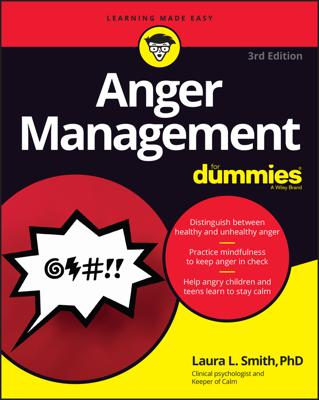Looking at the positives of anger
Anger can be a highly distressing emotion that results in all kinds of negative consequences. Yet, among the other possible stress emotions (upset, depression, grief, anxiety, and so on), anger remains the most popular and the most common. And not without reason. Anger has some appeal:- Anger is activating and mobilizing. When you're angry, you feel as if you're doing something about what's triggering your stress. You feel there is a response you can make, a way of expending energy toward resolving the distressing situation. It can get you to take action and do something about the problem.
- Anger makes you feel powerful. Anger can make you feel like you're in charge, even when you aren't. When you tell someone off or give them a tongue-lashing, you feel stronger and in control. Anger enables you to express yourself in a forceful way.
- Anger often gets results. By becoming angry, as opposed to remaining calm and pleasant, you may get what you want. Many people are intimidated by anger and are more obliging when confronted with it than they normally would be.
- Anger is often a respected response. We often interpret anger as standing up for ourselves and not letting others take advantage of us. And other people may see it the same way. Our anger may be labeled as assertive, strong, and confident.
Examining the downside of anger
Although your anger does have its upside, the downside of anger far outweighs any positive benefits. Besides being emotionally distressing and making you a prime candidate for a black eye, your anger can give you other things to worry about.Anger can make you sick
When you're angry, your body reacts much the same way it does when you are experiencing any other stress reaction. Your anger triggers your body to take a defensive stance, readying yourself for any danger that may come your way. When your anger is intense and frequent, the physiological effects can be harmful. Your health is at risk, and any or all of those nasty stress-related illnesses and disorders can become linked to excessive anger.Anger can break your heart
Recent research now indicates that your heart (or more accurately, your cardiovascular system) is particularly vulnerable to your anger and its negative effects. In his book, Anger Kills, published by Harper Perennial, Duke University researcher Redford Williams describes a number of possible ways hostility can negatively affect your cardiovascular system.Following are a few of the study findings:
- When potentially hostile individuals were angry, they had larger than normal increases in the flow of blood to their muscles (suggesting an exaggerated fight-or-flight response). They also experienced an increase in their levels of important stress hormones, such as adrenaline and cortisol, which can have negative effects on the cardiovascular system as well.
- Potentially hostile individuals with higher levels of blood cholesterol were found to secrete more adrenaline than those individuals with lower levels of cholesterol. For these individuals, the linkage between higher adrenaline secretions and higher cholesterol levels means they have a greater likelihood of arteriosclerotic plaque buildup.
- People who scored high on measures of hostility tend to have fewer friends. This lack of strong friendships means a weakened social support system. Being able to talk to someone about what's stressing you can lower your blood pressure — and having no one to talk to certainly doesn't do anything to help you. Research has shown that socially isolated individuals excreted higher levels of stress hormones in their urine than those who had strong support systems.
- Hostile individuals typically don't take good care of themselves. They tend to engage in a number of destructive health behaviors, including smoking, drinking, and overeating. All of these behaviors can have negative effects on the cardiovascular system.
Understanding when and why anger is appropriate
Does this mean that all of your anger is inappropriate or destructive? No, not at all. In fact, in measured doses and expressed in the right way, anger can be appropriate and effective, helping you to take action, solve problems, or in some way better deal with the situation at hand. Anger clearly has a place in your emotional repertoire.However, a big difference exists between feeling annoyed or somewhat angry for a brief period and having strong feelings of anger that simmer for hours. When it is intense and prolonged, anger can result in incredible amounts of stress and damage to your overall well-being. Understanding how you create your anger and knowing how to reduce that anger are the keys to anger control.

